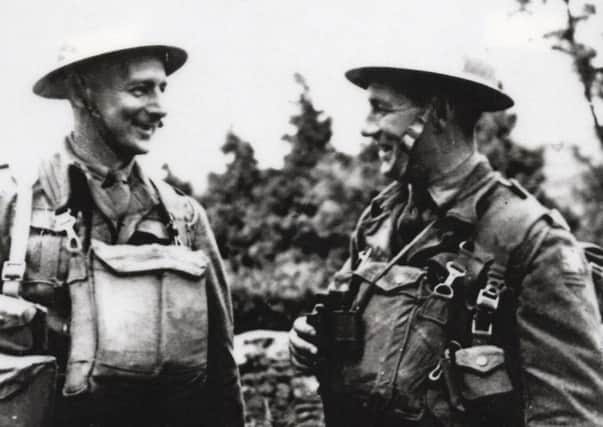The last summer of one of Yorkshire’s cricketing greats


ON September 1, 1939, the final game of first class cricket in England before the outbreak of war ended with a nine-wicket win for Yorkshire over Sussex. Len Hutton, the last wicket to fall, would return to cricket at war’s end to establish himself as arguably the finest English batsman.
Standing in stark contrast was the fate of the game’s other star, Hedley Verity, the England Test spinner, whose second innings figures of seven wickets for nine runs clinched the match; he would never see the green playing fields of his homeland again.
Advertisement
Hide AdAdvertisement
Hide AdLeeds-born Verity made his first-class debut relatively late, at the age of 25, and only managed 10 years of cricket before the war. He played 40 times for his country and took 144 wickets, in the process becoming the fastest Englishman to 100 wickets.
Two other records of his still stand as testament to his excellence. The first is his capturing of 10 wickets for 10 runs in a single innings against Nottinghamshire. The second was the taking of 14 wickets in a single day in an Ashes Test match; a performance made even more noteworthy because it won England their only victory over Australia at Lord’s in the 20th century.
Verity began preparing for his career as a soldier several years before that final game. The thoughtful and methodic mindset which characterised his bowling permeated the rest of his life. During the heightened tensions of 1938, Verity had sought out a friend who was serving in the Army who gave him a handful of military text books.
When war duly arrived, Verity’s status as a Test cricketer saw him posted to the relative comfort of Guernsey, as a sapper in the Royal Engineers. However, he wanted to do more and before long was commissioned as an officer in the Green Howards.
Advertisement
Hide AdAdvertisement
Hide AdOn the night of July 20, 1943, the regiment was tasked with driving the Allied forces towards Misterbianco during the invasion of Sicily. The attack was to be led by B Company, with Captain Verity at its helm.
With the pitch black night offering protection and the supporting artillery firing to a fixed schedule, the key to success was timing. As a cricketer Verity knew this better than most, and now it let him down. The artillery bombardment concluded with his men exposed, short of their ground, yet far ahead of their support.
The great Don Bradman, against whom no bowler had a better record, once said: “With Hedley... there’s no breaking point with him.” Now, surrounded by the enemy, mortally wounded from a shrapnel wound to his chest and with his lieutenant and half his men killed, Verity kept his resolve.
His last orders to his troops were to “keep going”, pushing them forward even though he knew they would be forced to leave him behind.
Advertisement
Hide AdAdvertisement
Hide AdHis batman, Private Tom Rennoldson, remained with him and, once the pair had been captured, stayed by his side throughout surgery. Yet Verity’s health continued to deteriorate and on July 31, 1943 he succumbed to his wounds.
The Forces War Records website has reports issued by the War Office which show Captain H Verity first listed as ‘missing’, which was corrected to ‘wounded and missing’ a week later, before it was announced, after another fortnight, that he had ‘died of wounds whilst a Prisoner of War’.
In an obituary, Bradman wrote: “I cannot ever recall hearing Verity utter a word of complaint or criticism... if reports of his final sacrifice be correct, and I believe they are, he maintained this example right to the end.”
Hedley Verity was a truly rare breed, a quiet man of action. His military career earned him no gallantry awards, he never won any great battles, and his grave is the same as those of thousands of others who lost their lives. Despite this, he deserves to be remembered for more than just wickets and runs.